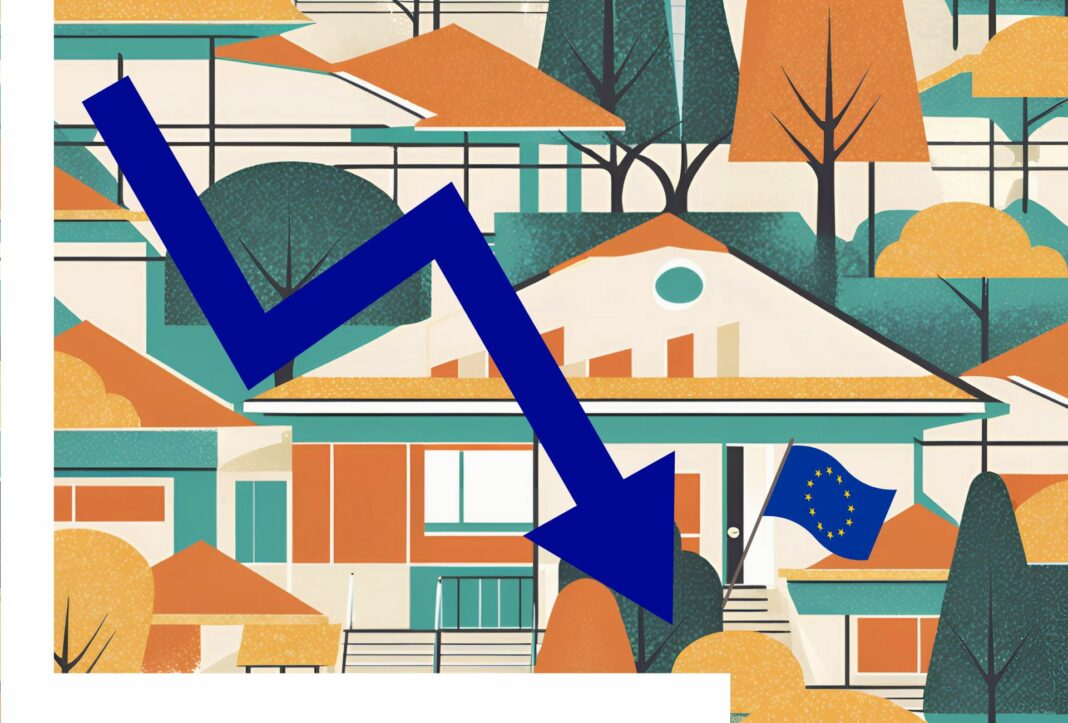An IMGW News Report
In a surprising turn of events, the European real estate market witnessed a significant downturn in 2023, marking its first decline in house prices across the continent in 10 years. The latest data from Eurostat reveals a 0.3 percent drop in residential property prices throughout the EU, with an even more pronounced decline of 1.1 percent within the eurozone.
Among the worst-hit nations, Germany experienced a staggering annual housing price drop of 8.4 percent, closely followed by Luxembourg with a 9.1 percent decrease. Finland and Sweden also grappled with declines of 5.6 percent and 5.3 percent, respectively.






